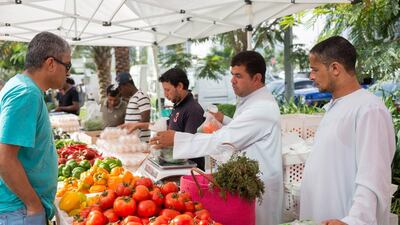There’s a lot in the old adage that “you are what you eat”. While the saying once meant simply that a healthy diet leads to a healthy body, it now speaks to the rapidly changing role of food in society. Not so long ago, people’s choices of nutrition were pretty much made for them, based on what ingredients were available and how they happened to be cooked in their own discrete cultures. Now, for those of us fortunate enough to live in nations where food is abundant, what we eat has increasingly become a marker of the identities we have chosen for ourselves.
Just take a look at your own kitchen cupboards. There are few better indicators of what kind of person you are. Mine, for instance, are packed with home-made pickles, a large selection of international hot sauces, Oxo cubes and various bottles and jars with the word “artisanal” somewhere on the label. It doesn’t take Holmesean powers of deduction to work out that I’m a British man of a certain age, with a beard and several tattoos, who lives on his own and likes to cook.
Whether you’re a similarly reluctant culinary hipster, a lover of French fine dining or a dedicated vegan, the idea of eating as locally and as seasonally as possible cuts across all boundaries. As you’ll no doubt have read before, reducing the distance our food has to travel before it hits the table is better for the planet, allows us to eat fresher and more nutritiously, and fosters a better understanding of the world we live in.
The only problem with this idea is that it has largely been formulated in temperate – and affluent – western nations that are capable of producing a broad and changing range of crops. Countries with less water and harsher climates have a much tougher time meeting their own food needs.
Take the UAE, for example. When I first moved here, 10 years ago, embracing the locavore philosophy would have been challenging in the extreme. Back then, the overwhelming majority of vegetables and meat came from overseas – the catchment area ranging from relatively near neighbours such as India, Pakistan and Lebanon to much further afield, including the Netherlands, Brazil and Australia.
Of course, there is still plenty of imported food here, but having recently returned to the country – and The National – it is clear that "majority" no longer means "just about everything". A trip to any of Abu Dhabi's excellent supermarkets now reveals a vastly increased range of UAE-grown produce. From peppers, aubergines and cucumbers to courgettes, tomatoes and cauliflowers, the choice is ample and the quality superb. Far from being the impossible task it once was, it is now relatively easy to make great meals without racking up countless thousands of food miles.
And if you’re a little forgiving in your definition of local, the options are bounteous. Just including Oman, the border of which lies less than 200km away from the capital, opens up a whole delicious world of okra, beets, papayas, bananas, mangoes and coconuts – in fact, I’ve come to refer to it as “the garden of the Gulf”.
In our own backyard, the Ministry of Climate Change and Environment recently released a report stating that 20 per cent of all fruit and vegetables consumed in the UAE are now grown here. The same document goes on to detail how at least Dh35 million worth of local produce was sold at Carrefour, Union Co-op and LuLu stores nationwide in the last year. These statistics are impressive, and with events such as Deerfields Mall’s Friday and Saturday farmers markets, and LuLu’s promotion of UAE-grown food, it appears that demand and accessibility are rising hand in hand.
None of this is down to happenstance. In October last year, the UAE government announced that it was reaching the final phase of its plan for food security. Part of this strategy is globally focused, as illustrated by the inking of an agreement with Uganda to establish an agricultural free zone in the country for Emirati companies. However, efforts to increase domestic production with the use of the latest technology are just as important. To that end, Dubai has recently committed to building 12 vertical farms, based on cutting-edge hydroponic systems, which will be capable of producing a colossal amount of fruit and vegetables.
There is also a growing choice of local meat, dairy produce and eggs, and let’s not forget that there has always been a plentiful supply of high-quality seafood here. For me, the best way to purchase these items is to head to dedicated spaces. Mushrif Mall’s meat market, for example, is a convivial, hands-on kind of place, offering a wide variety of imported and UAE-reared livestock – from chicken and quail to goat and gazelle. Mina Port fish market, meanwhile, is a living history lesson in the heart of Abu Dhabi. Its dhows dock every day laden with shrimp, crab, lobster and fish from nearby waters, and if you’re feeling particularly lazy, several stalls will even spice and roast your purchases for you, ready to take home. Try it and you won’t have a better dinner all week.
And that’s the key to it all, really. In addition to being ethically sound, eating local makes food a more interesting and involving experience. What better and more immediate way is there to engage with the place you live than buying what’s grown and reared there, direct from the source? You don’t have to commit your life to it, either. You can start small and aim for a meal or two a week, or just make an effort to cut down on your use of imported products. Next on my UAE menu is a gazelle neck, tomato and pepper ragu. It won’t even go near an Oxo cube.

